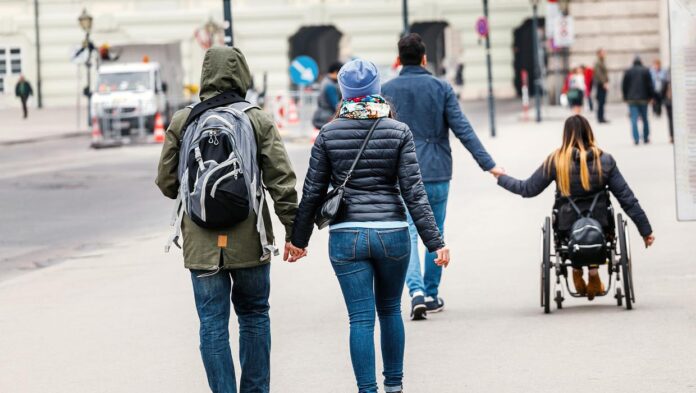Amsterdam is the most accessible city in the world for disabled travellers, according to a new survey. esearch by Valuable 500, a global collective of 500 CEOs and their companies advocating for inclusion, asked 3,500 respondents with disabilities across the UK, US, Australia, China and Japan what they believed was the most accessible city in the world. It then compiled a list of the top 10 globally, rating them on criteria including accessible transport links, clear signage, accommodation being close to cultural attractions and inclusive attitudes. Amsterdam topped the list, followed by Las Vegas, New York and Orlando. Paris placed fifth. No Irish city featured. Top 10 accessible cities (Valuable 500) Amsterdam (Netherlands)Las Vegas (US)New York (US)Orlando (US)Paris (France)Shanghai (China)London (UK)Singapore (Singapore)Sydney (Australia)Tokyo (Japan) In Amsterdam, the report highlighted the city’s 400km of bike lanes (‘while caution should be observed, wheelchair users can and do avail themselves of the smooth ride’), ‘fairly accessible’ public transport, and tourist attractions that are ‘almost all’ accessible – with the exception of Anne Frank House and Rembrandt’s 17th century home. “While older buildings may not be wheelchair accessible – and cobblestones may be an issue for people who have a mobility need or who are visually-impaired – public buildings, spaces and public transport are all relatively accessible,’ it says. “Pavements are well maintained in the city’s popular tourist areas, and there are plenty of kerb cuts and TGSI.’ The Valuable 500 results were published during World Travel Market in London this week as part of wider research on barriers facing disabled people when travelling. ‘Worldwide, tourist boards still aren’t making the necessary headway to remove the physical and ethical barriers to ensure cities are truly accessible for all,’ said Caroline Casey, Valuable 500 founder. ‘Accessibility arrangements for people with disabilities remain an afterthought for the travel and tourism industry – which is why we’re looking into every aspect of the industry journey for people with disabilities in this body of research.’ An estimated one billion of the world’s population live with disabilities, the report says. “While no city can claim to be fully accessible – access needs are far too wide-ranging and diverse – there are several that deserve praise for the efforts that they are making,’ it adds. In the case of London, 57pc of respondents credited the city’s accessible transport links for their vote. Its cultural attractions, shops and restaurants being close to accommodation options was cited by nearly half (45pc) of those surveyed. More than two in five (45pc) said information is easily accessible for disabled travellers, while a similar number (48pc) said its cultural attractions broadly have good accessible features and support. But the research also highlighted the difficulty of London’s crowds for people with disabilities, with only two per cent of respondents saying it had fewer crowds than other cities. “Notably, Singapore, Amsterdam and Paris are the only cities on this list that aren’t in the home countries of respondents to the survey,’ the report’s author, Martin Heng, writes in his introduction. ‘In fact, in every case, respondents chose a city in their home country as the most accessible. “This is undoubtedly because travellers with a disability need to be confident their needs will be met – failure in our case doesn’t just mean disappointment, but potentially disaster – and that means they need to be able to access information to confirm not only that they will have somewhere to stay, but that they will also be able to get around and see what they want to see. ‘Clearly, it’s much easier to get accurate information about accessibility in one’s own country, where you know not only the language but also systems, and how things work.’ Read the full report on Valuable 500’s website.
Revealed: 10 most accessible cities for travellers with disabilities
Sourceindependent.co.uk
RELATED ARTICLES


